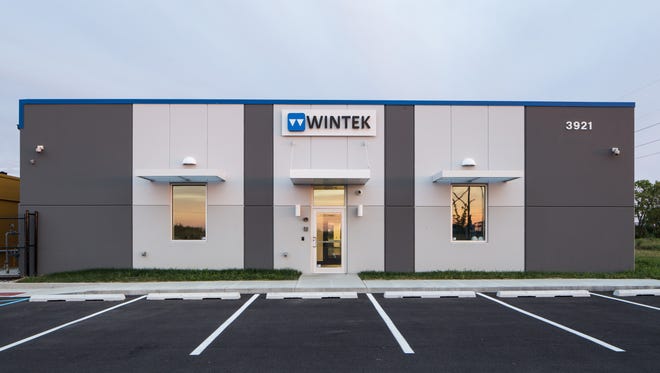A new bank focused on lending to entrepreneurs and small businesses is bucking the trend of consolidation sweeping across the banking industry.
Set to open next week in Bloomington, EntreBank has the distinction of being the first “de novo,” or newly formed, bank in Minnesota in 14 years.
The bank was founded by a group of experienced leaders at other local banks around town who say it’s precisely the current landscape in which many smaller banks have been acquired by bigger banks as to why they see room for a new community bank in the market.
“A lot of the good business banks have been swallowed up,” said Daniel Boeckermann, the driving force behind EntreBank. “And once they’re swallowed up by one of these larger organizations, in spite of what they always say, they change. And they’re no longer a true entrepreneurial bank, people who work with entrepreneurs and are willing to help them achieve their vision and objectives.”
At the same time, he also sees a growing need for more lending options in the market as the pandemic has spurred many people who lost their jobs to start their own businesses.
The group of five founders, including Boeckermann, who is the largest shareholder, kicked in $16.8 million in capital and raised another $28 million.
Within about three years, they hope EntreBank will have about $300 million in assets.
Boeckermann, an accountant, has a long history in community banking around the Twin Cities. He served on the board of Minneapolis-based Riverside Bank in the late 1990s until it was purchased by Associated Bank.
He left soon after to start Venture Bank in 2001 with two other Riverside executives. It rose to become the largest independent small-business lender in the Twin Cities before being sold to Choice Financial of Fargo in 2018.
Boeckermann said that many of his investors — mostly his friends and clients — were ready to liquidate their investments, though he says in hindsight he would have preferred not to sell. He’s been itching to start another community bank since then.
About a year ago, he started putting the EntreBank team together. It now includes CEO Tim Viere from Merchants Bank, President Todd Hovland from MidWestOne Bank (formerly Central Bank), Chief Financial Officer Erik Knutson from Drake Bank, and Chief Credit and Marketing Officer Melissa Johnston from Highland Bank.
“As a team, we came in staggered over a four-month period and then it was full speed ahead trying to get through the business plan and raise money and capital to start the bank and get through the approval process,” said Hovland.
He added that they didn’t know each other beforehand.
“But the chemistry among all of us has been amazing,” he said.
Since it had been such a long time since a new bank had formed in this region, it was a learning process not just for the team, but also for the regulators, he said.
They didn’t have to hire a firm to help them raise funds because they had an “overwhelmingly positive” response from the community, tapping into their own networks, said Johnston.
“One of biggest surprises we had along the way was how quickly we oversubscribed,” she said. “And then we got into a situation where we had to talk with investors about putting in less than they wanted to because we wanted to have 100 shareholders.”
The bank, which is set to open March 21, already has 14 employees. It will initially operate out of a temporary space in the same building off of I-494 that will house its permanent location, which is slated to be completed by September.
The last de novo bank in the state was Edina-based Minnesota Bank & Trust, which got its start in 2008. In the several years prior to that, a handful of new banks formed every year in Minnesota.
But the Great Recession changed all that, leading to the failure of hundreds of banks around the U.S. More recently, mergers and acquisitions have become the industry norm, driven by rising technology costs.
It’s challenging to start a new retail bank given those technology costs and existing competition.
But in business banking, the EntreBank founders say, there are not as many local competitors. And personal relationships and being able to move quickly still matter a lot.
As an example, Johnston noted that the PPP process in the early day of the pandemic showed that community banks were able to be “more nimble and more responsive and really were there for their clients versus some of the bigger banking options.”
Boeckermann added that they will be able to relate firsthand to their customers’ entrepreneurial spirit.
“I mean, we’re entrepreneurs ourselves, so that makes a big difference,” he said.

